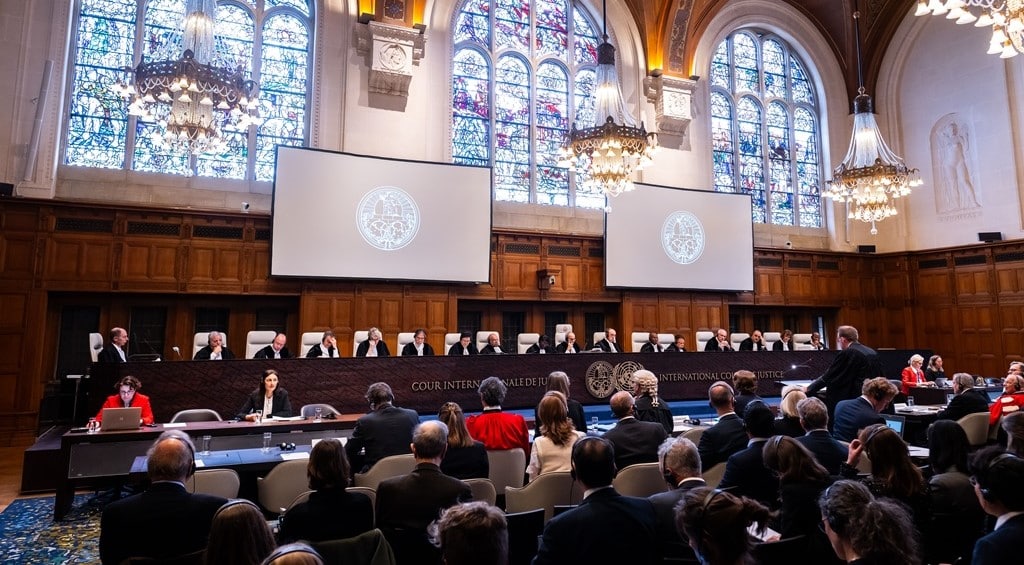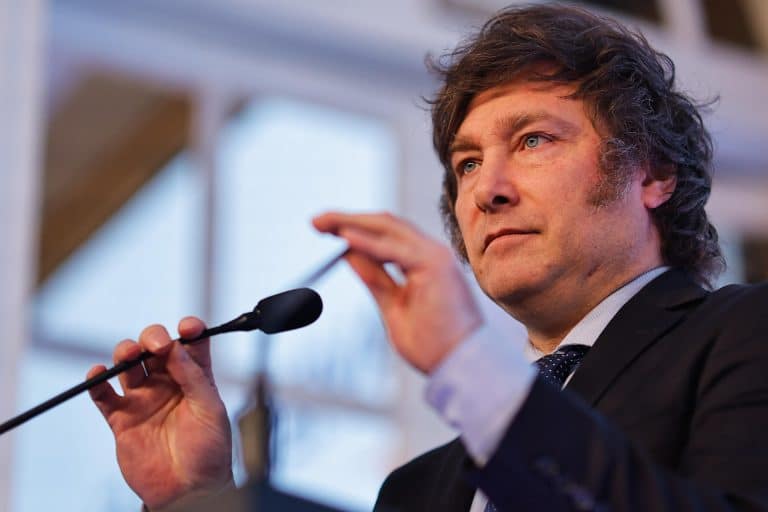20 de enero 2024

ICJ Rules Against Nicaragua's Request For Germany to Halt Arms Sales to Israel

PUBLICIDAD 1M
PUBLICIDAD 4D
PUBLICIDAD 5D
The new libertarian government of Javier Milei seems to intend to subvert, with substantial conviction, the institutions of the Argentine Republic

Javier Milei como candidato presidencial del partido ultraderechista La Libertad Avanza, en la vigésima edición del Consejo de las Américas (Council of the Americas), en Buenos Aires. // Foto: | Juan Ignacio Roncoroni
The defenders of the new government of La Libertad Avanza emphasize that Milei was elected president by the majority of Argentines and that for this reason “Milei’s government is not a dictatorship”, as a few detractors of the libertarian are shouting. Milei was elected in the second round with 55% of the votes in an election recognized by all as free and transparent. In these few days that the government has been in power, the use of force to repress those dissatisfied with the new reforms has not been observed either.
Even though Milei has only been in office for a month, there have been different protest groups against the reforms. Although the police operations to deactivate two protests with moderate calls implied the deployment of more than 1000 troops or that the president moved to the monitoring center of the federal police, this does not mean at all that there were security forces repressing people as in the dark times that we Argentines lived through.
At the same time, Milei is upset with Congress because he wants his mega decree of necessity and urgency and his omnibus bill to be approved without a whimper. However, the Congress is still standing. The nation’s Judiciary is also functioning within a framework of democratic legality as before Milei’s arrival. At the same time, numerous journalists and media panelists freely criticize the new government without being intimidated. For all these reasons, “Milei’s government is not a dictatorship”, but does the president intend to govern under a full democracy?
Is Milei a faithful representative of the democracy that protects our National Constitution, the one he defends so much in his speeches when he clamors to return to the times of Juan Bautista Alberdi, author of the Argentine Constitution of 1853?
Our Magna Carta states that our form of government is representative, republican and federal, and concerning the representative character it says in Article 22: “the people neither deliberate nor govern, except through their representatives and authorities created by this Constitution”. Regarding the republican character, the Constitution establishes the division of powers, the Legislative which sanctions the laws, the Executive which executes them and the Judiciary which interprets and enforces them.
In the general elections, Argentines elected their president, but also their legislators, deputies and senators of the nation. For this reason, according to the highest constitutionalists who sympathize with the new president, Milei’s government, with its pretensions to have a Decree of Necessity and Urgency with 366 reform measures and a bill containing 664 articles approved in record time, is not agreeing with a republican regime.
In fact, it should be noted that Milei’s government declared a public emergency until December 2025 with the possibility of an extension for two more years. In other words, the Decree of Urgency and the omnibus law imply granting more than 1,000 extraordinary powers to the President for his entire term of office.
Milei rants against “collectivism” (the gigantic and omnipresent State) with rational arguments. Nevertheless, at the moment of governing he emulates a Rousseaunian type of government where “the general will” rules. This explains, perhaps, why the new president gave his first inaugural speech in an outdoor space with his back to Congress, facing the citizens who elected him, whom he insists he will consult through a plebiscite if the Decree of Urgency is rejected.
Milei, who also reveres liberalism, clashes head-on with the ideas of John Locke, who advocates a type of representative democracy, or with those of Tocqueville or Mill, who in their writings convey their fear of “the tyranny of majorities” that can lead to ignoring the opinion and decisions of minorities -those opposed to a government in office.
The system of government in Argentina, according to the Constitution claimed by Milei, is not a direct democracy. Therefore, it is not allowed to govern through popular consultations. It is a republican system, and therefore, it is necessary to govern by agreeing with Congress the forms and contents to govern.
Argentina has experienced decades of institutional and constitutional abuses by Kirchnerism, which often dared to use all kinds of devices to ignore the Congress and the National Constitution. Now, the new libertarian government of Javier Milei also seems to intend to subjugate, with substantial conviction, the institutions of the Argentine Republic.
This article was published in Spanish in Confidencial and translated by Latinoamérica 21. To get the most relevant news from our English coverage delivered straight to your inbox, subscribe to The Dispatch.
PUBLICIDAD 3M
Politóloga y docente argentina, graduada en la Universidad de Buenos Aires. Escribe columnas políticas que se publican en La Nación, Perfil, El Economista, Clarín, entre otros diarios de Argentina y Latinoamérica.
PUBLICIDAD 3D